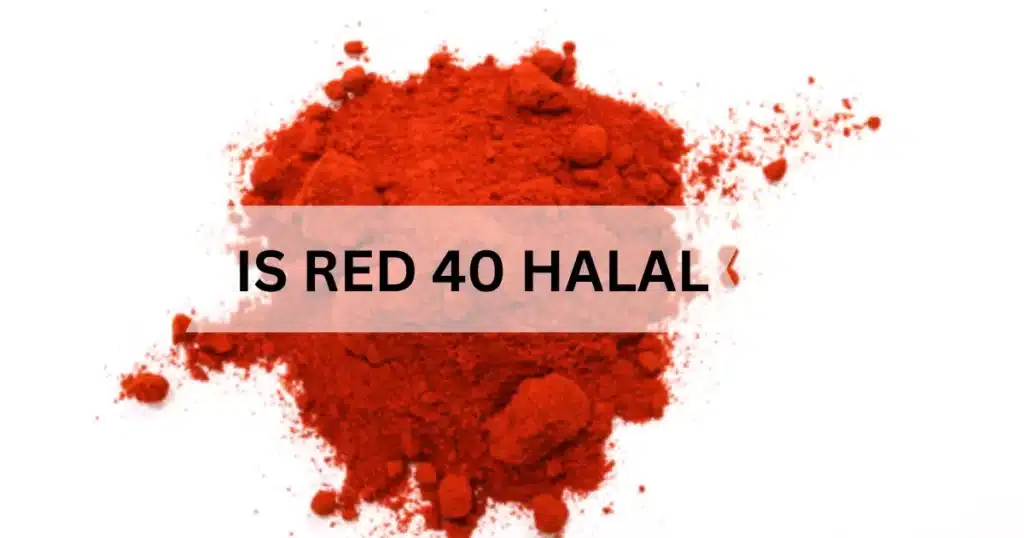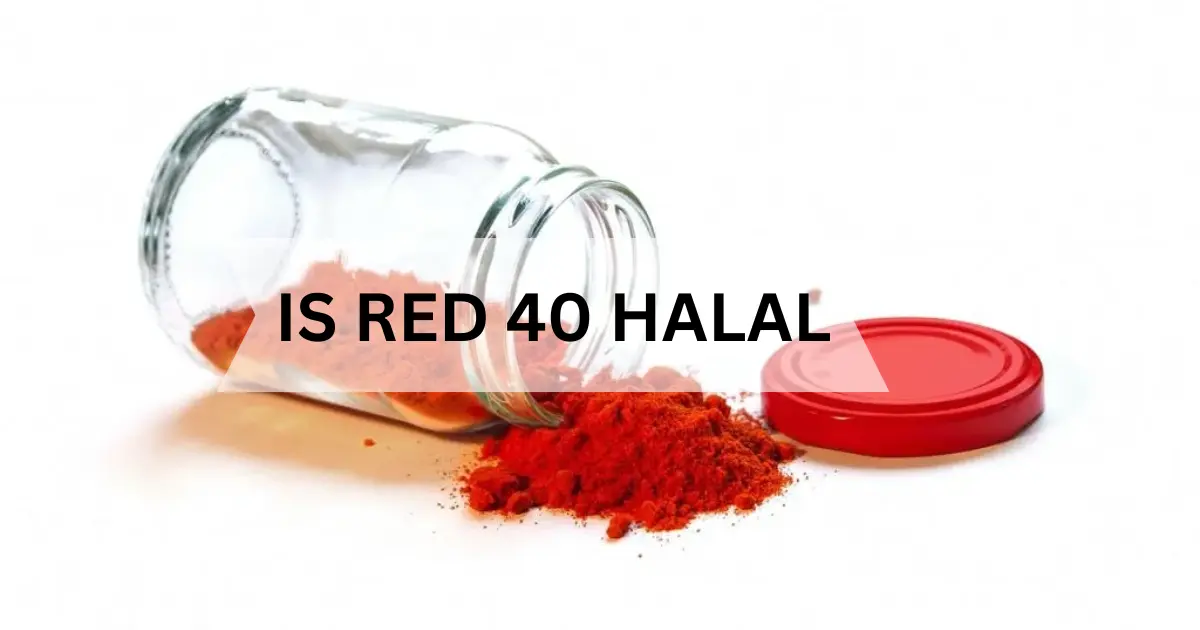Is Red 40 halal? is a common question among Muslim consumers concerned about the ingredients in their food and drinks. Red 40, a widely used synthetic food coloring, is derived from petroleum products.
To determine its halal status, it’s essential to understand its production process and any potential non-halal additives. This information helps Muslims make informed dietary choices in accordance with Islam.
Is Red 40 Halal in Islam
- SANHA (South African National Halal Association):
The SANHA classifies Red 40 as halal based on its origin from petroleum, aligning with their stringent criteria for halal consumption. This determination provides assurance to Muslim consumers seeking products free from animal-derived ingredients. - Mufti Faisal al Mahmudi’s View:
Mufti Faisal al Mahmudi’s endorsement of Red 40 as halal underscores its acceptability within Islamic dietary guidelines. His assertion rests on the understanding that Red 40 is sourced from petroleum, ensuring it meets halal standards by avoiding any connection to animal by-products. - UK Perspective:
In the United Kingdom, Red 40 is recognized as halal due to its extraction from minerals rather than animal sources. This viewpoint emphasizes compliance with halal principles, offering clarity to consumers concerned about the ingredients in their food and beverages.
While Red 40 is considered halal, consumers need to stay informed and check product labels to make informed choices

Is Red 3 Halal
Red 3 (Erythrosine) is a synthetic food dye used in various products. However, when it comes to determining its halal status, it is considered not permissible in Islam.
Several scholars have highlighted concerns regarding its origin, which is derived from coal tar. Therefore, it is advisable to avoid products containing Red 3 if you seek halal-compliant options.
The alternative of Red 40
If you’re looking for alternatives to Red 40, especially for natural coloring, consider the following options:
- Beet Juice: Beet juice powder provides a similar red color and is made from real beets.
- Paprika: Paprika extract can add natural red hues to foods.
- Tomato Paste: Tomato paste is another option for achieving red coloring.
- Turmeric: Turmeric can be used for yellow or orange coloring.
These whole foods offer natural alternatives to synthetic Red 40 and can be used in home cooking or food preparation.
Is Red 40 is Healthy
- Safety: The U.S. Food and Drug Administration (FDA) certifies Red Dye 40 as safe for consumption, listing it among nine approved food coloring agents. The Environmental Protection Agency (EPA) also considers it of low concern.
- Acceptable Daily Intake: The estimated daily exposure to Red Dye 40 is not a health concern for people of all ages. The acceptable daily intake (ADI) is 3.2 mg per pound of body weight, translating to 476 mg for a 150-pound person.
- Allergies and Migraine: Some studies link Red Dye 40 to allergies and migraines, but allergic reactions are rare and mainly involve the skin.
- Children: Red Dye 40 may be associated with behavioral disorders like attention deficit hyperactive disorder (ADHD) in children, although more research is needed.
While Red Dye 40 is generally safe, individual responses may vary. Staying informed and checking labels remains essential for conscious dietary choices.
Related Post
Conclusion
The consensus from authoritative halal certifying bodies such as SANHA, Mufti Faisal al Mahmudi’s perspective, and the UK stance affirm that Red 40 is halal.
This consensus is rooted in the understanding that Red 40 is derived from petroleum or minerals, ensuring it is free from animal-derived ingredients.
For Muslims adhering to halal dietary guidelines, this confirmation provides assurance when choosing products containing Red 40, knowing they align with religious dietary laws.
FAQs
To make informed halal choices, check product labels, seek reliable halal certification, and understand diverse opinions within the Muslim community
While Red 40 is generally safe, individual responses can vary. Some people may experience allergic reactions or migraines. It’s essential to monitor your own tolerance and consult a healthcare professional if needed.
No, Red 40 does not contain alcohol. It is derived from synthetic sources (such as petroleum) and does not involve alcohol-based ingredients
Red 40 is primarily used in processed foods and beverages. It is not commonly found in natural, whole foods. If you prefer natural alternatives, consider beet juice or paprika extract for red coloring.


